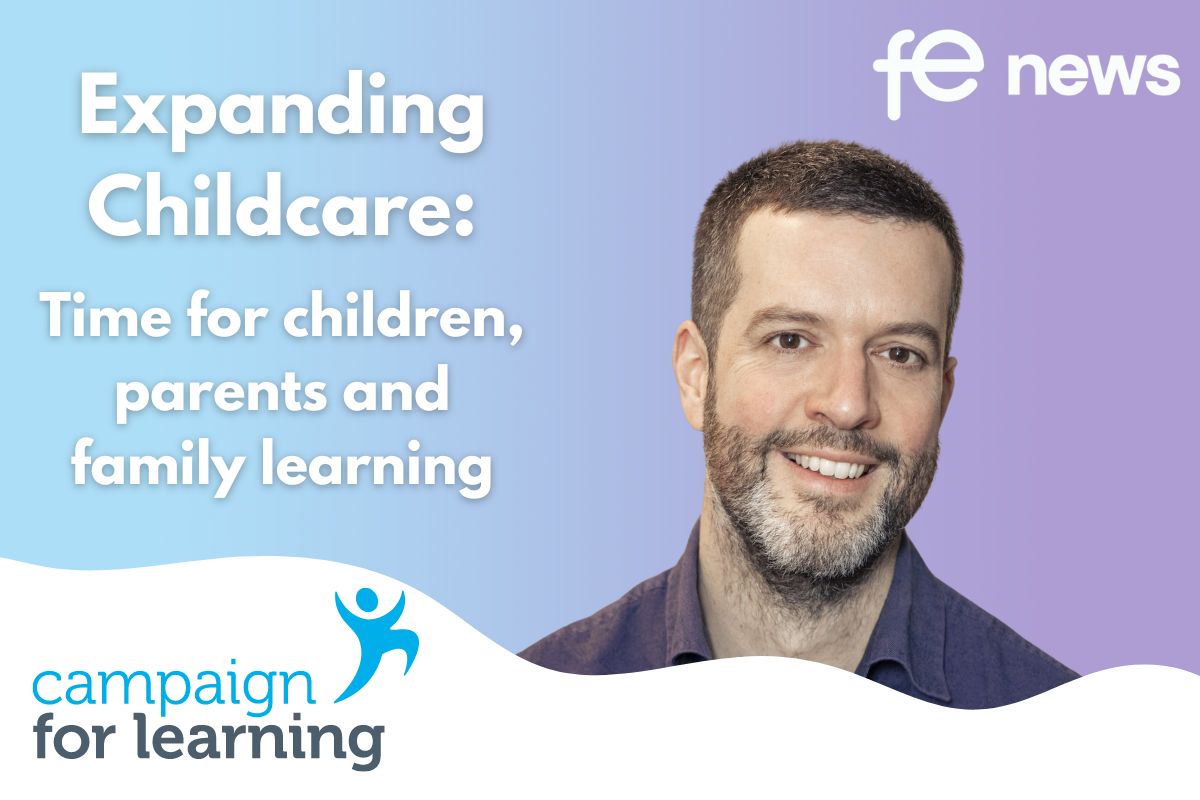Childcare and a new social contract

Expanding Childcare: Time for children, parents and family learning
When you stop to think about it, we have an identity crisis in Britain when it comes to the provision of public services. In some areas of life, it’s a given that the state provides universal services for free.
Very few people question the founding principles of the NHS – universal, equitable, comprehensive, high quality, free at the point of delivery, centrally funded – even if delivering those principles is increasingly challenging.
Similarly, few would question the role of government in providing universal free primary and secondary education, even if there is a debate about the best way to do this.
And yet, when it comes to the early years education and childcare, no such consensus exists, and no such provision is in place.
Why do we not think about, and treat, the provision of early years education and childcare in the same way as primary education?
Why do we argue about whether to prioritise the development of the child or the provision of childcare to the parents so they can work or learn themselves, when the aim surely is to achieve both?
Fairness of opportunity
The philosopher John Rawls talks about the ‘fair equality of opportunity principle’: that everyone should have a truly equal chance to succeed in life, regardless of their class, race or gender.
Removing the most obvious barriers to opportunity, such as discrimination on the basis of race, gender, sexuality or disability, isn’t enough – we also have to tackle the inequalities that prevent people from enjoying equal life chances, so that no child is denied those chances because of the circumstances into which they were born.
As US President Lyndon Johnson said in 1965: “It is not enough just to open the gates of opportunity. All our citizens must have the ability to walk through those gates.”
Access to early years education and childcare
The implications for early years and childcare policy are clear.
While we cannot expect the early years sector to magically compensate for huge inequalities of wealth, income, housing, health and so on, the equitable provision of high-quality and affordable early years education and care is hugely important in giving children a fair start in life.
We cannot continue to tolerate a situation whereby disadvantaged children are several months behind their peers before they even start primary school.
Attitudes
At the Fairness Foundation, we are interested in what the public thinks about arguments around fairness (specifically our five proposed principles of fairness, The Fair Necessities) in relation to issues such as early years provision. We commissioned some polling on this topic in February.
Our report, Fair Pay for Critical Days, found a widespread recognition that paying people a decent wage is in everyone’s best interests – 79% of Britons thought that wages in the early years sector are too low, and only 10% disagreed.
Meanwhile, 61% agreed that ‘the government should invest in making high-quality early years provision affordable for all parents because it is a basic need, just like primary and secondary education’.
A similar proportion, 62%, agreed to the statements that ‘the government should invest in making high-quality early years provision affordable for all parents because it will help to ensure that all children have fair opportunities’ and ‘the government should invest in making high-quality early years provision affordable for all parents so that more parents can get back into work’.
However, respondents were divided about whether there should be universal, taxpayer-funded early years education and childcare provision.
A minimum level of provision
The survey findings suggest that most people want the government to provide a minimum quantity and quality of early years provision, and see it as providing both childcare and education, rather than one or the other.
People want a system that guarantees the basic needs – and fair opportunities – both for children and their parents. However, not everyone thinks about early years education and childcare in the same way that they think about either primary and secondary education between the ages 5 and 16 – or the NHS.
Early years education and childcare, and lifelong learning
We commissioned some more polling in March on the role of government in delivering a social contract. This found that a large majority of voters think that the government should fund a wide-ranging social contract, with guaranteed provision of a range of services including early years education and care, and lifelong learning.
Recommendation 1
The Government should be guaranteeing a minimum level of provision of early years education and childcare, covering quality as well as affordability and availability.
Recommendation 2
The Government needs to bring about a root-and-branch reform of early years education and childcare provision, so that this minimum-level guarantee can be delivered in practice.
Recommendation 3
The Government must look at the other end of the educational spectrum to deliver a similar offer on lifelong learning. These are crucial building blocks on the way to constructing a fairer society.
By Will Snell, Chief Executive, The Fairness Foundation
Campaign for Learning has released a new series of articles, Expanding Childcare: Time for children, parents and family learning.
See below when each article will be published on FE News:
Part One: Childcare the welfare state – 20th July
1. Will Snell, Chief Executive, The Fairness Foundation
Childcare and a new social contract
2. Anneka Dawson, Head of Pre-16 Education, Ceri Williams, Senior Research Fellow, and Alexandra Nancarrow, Research Fellow, Institute for Employment Studies
The childcare sector: Providers and the workforce in England
Part Two: Childcare and time for work – 21st July
3. Paul Bivand, Independent Policy Analyst
Women, employment and childcare
4. James Cockett, Labour Market Economist and Claire McCartney, Policy Adviser, Resourcing and Inclusion, CIPD
The planned childcare entitlements and progression into work
5. Jane van Zyl, Chief Executive, Working Families
Combining flexible working and childcare to solve the childcare crisis
Part Three: Childcare and time for child development – 24th July
6. Janeen Hayat, Director of Collective Action, Fair Education Alliance
Improving childcare quality to support educational outcomes
7. Megan Jarvie, Head of Coram Family and Childcare
Making a step change to child development through childcare
8. Professor Elizabeth Rapa and Professor Louise Dalton, University of Oxford
Childcare, children’s development and education outcomes
Part Four: Childcare and time for parental engagement – 25th July
9. Lee Elliot Major, Professor of Social Mobility, University of Exeter
The childcare revolution: A new opportunity for parental partnerships in child learning
10. Bea Stevenson, Head of Education, Family Links the Centre for Emotional Health
Childcare and parental engagement in child learning
Part Five: Childcare and time for adult skills – 26th July
11. Simon Ashworth, Policy Director, AELP
The new childcare entitlements and skills bootcamps
12. Sharon Cousins, Vice Principal, Newham College and National Association for Managers of Student Services Executive
The new childcare entitlements and access to further education
13. Susan Pember, Policy Director, HOLEX
A thriving society means linking the new childcare entitlements to adult learning
Part Six: Childcare and time for family learning –
27th July
14. Sam Freedman, Senior Fellow, Institute for Government
The childcare revolution and family learning
15. Susan Doherty, Development Officer – Family Learning, Education Scotland
Family learning and childcare: Lessons from Scotland
28th July
16. Susannah Chambers, Independent Consultant
Bringing childcare and family learning together
17. Henriett Toth, Parent
Family learning and childcare: A personal experience











Responses